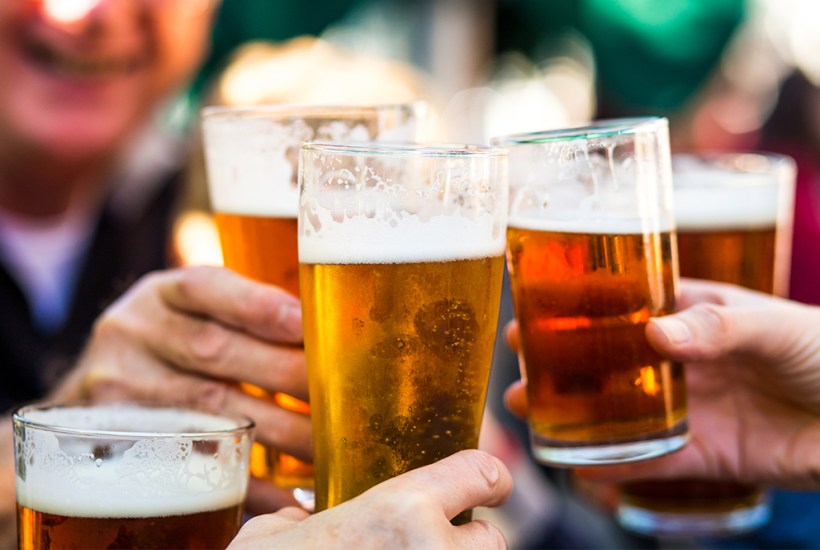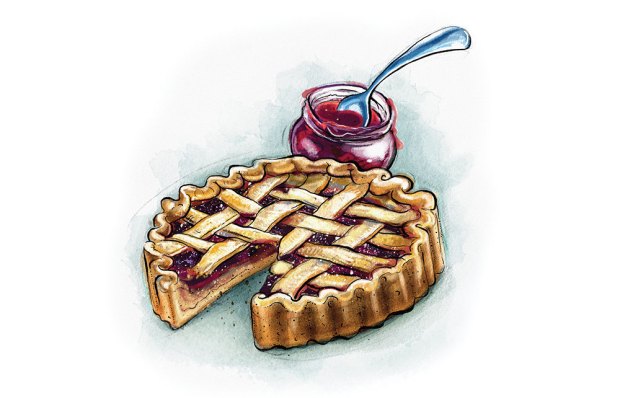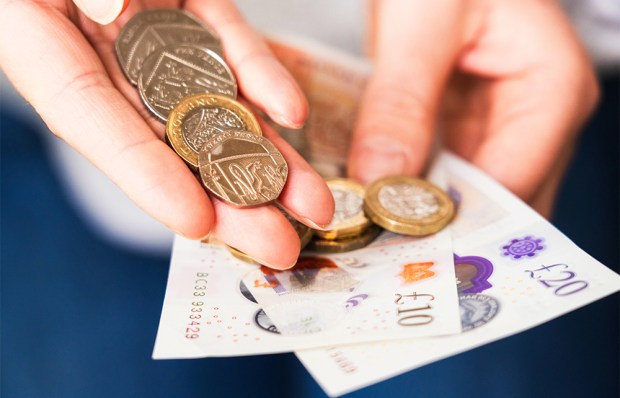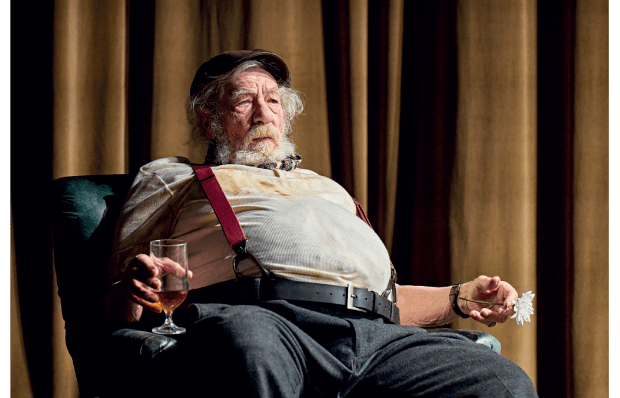My guts went on strike last July. I was staying in a hotel and I spent several days sprawled on the bed, vomiting occasionally, eating and drinking nothing and barely able even to wet my lips with water. Meanwhile, a bottle of Prosecco offered by the management stood untouched next to the widescreen TV. I started to wonder if this was my Frank Skinner moment. My farewell to booze.
In his memoirs, Skinner describes how he gave up drinking by accident in his twenties when a virus confined him to his bed for a week and destroyed his interest in alcohol. Restored to health, he went back to the pub to meet his friends but he shunned drink because he’d realised it was superfluous. As rehab stories go, Skinner’s is bizarre because it’s so quiet and unassuming. There’s no clash of cymbals. No Wagnerian power-chords. No rock-bottom moment of remorse and renewal.
Skinner gave up drinking as easily as renewing his car insurance. And his tale of recovery undermines all the mighty epics offered by the psychiatric trade whose members insist that drugs can’t be defeated without a lifelong war that involves teams of shrinks on 24-hour stand-by ready to swing into action if the poor addict succumbs to a night-time craving.
My experience last summer took the same unshowy path. After two days without water my tongue was parched, cracked and almost bleeding, and I crawled out to a supermarket where I bought a flagon of tropical juice that contained at least a pint of concentrated corn syrup. The sugar-hit was instant, and I laid in extra supplies of this delicious fluid in my hotel room. Later on, still unable to touch alcohol, I met a few friends in a bar and I chatted away as they knocked back their wines and their ales.
The evening developed along the usual lines except that I spent no money and I left after an hour to go back to my hotel for a secret glass of sugary joy. Normally, I’d have stayed in the pub until closing time and finished the session with a whisky night cap. When I woke up the next morning I was sober but still groggy and sleepy. That’s normal for me. I’m always drowsy and heavy-lidded until about noon. And now, three months later, I still feel wretched every morning even though I’ve avoided alcohol every since. Sobriety, contrary to what they say, doesn’t correct your sleeping patterns. Neither has it improved my life in other ways. ‘Gosh. You look really well,’ people tell me with a cheerful grin. Which makes me feel paranoid. Have I been looking ill for ages? If so, why didn’t they warn me?
The great advantage of the Skinner temperance method is that there is no method at all. It just happens, out of the blue. There are no rules or procedures, no errors to watch out for. So I’ve avoided the meditative ceremonies of the 12-steppers. Probably just as well. What could drive a man to drink faster than a semi-circle of garrulous penitents wallowing in their recollections of injury, assault, vandalism and imprisonment that led them to give up the hooch for good? These alcohol-free synods are wildly popular, apparently. All over the world, they convene in hired village halls and in bleached scout huts where they provide a forum for ex-soaks and booze-free bodybuilders to indulge in the rites of remorse and public self-flagellation.
I seriously doubt if every visitor is a recovering addict. Quite a few must be failed comedians who can’t get a paid gig and are happy to perform for an audience of volunteers. I’d find it impossible to join such a pious and demanding fellowship. The title alone puts me off: 12 steps. Twelve of them! Nasa reached the moon in 11. Moses managed with ten. Hippocrates reduced it to one: ‘Do no harm.’
If you’re an adult who shuns alcohol (or any other medicinal concoction), you revert to your childhood experience when no stimulants or deadeners were available. I’ve turned into the 14-year-old I used to be. I’m solitary, bookish, arrogant, self-righteous and icily intolerant of my fellow human beings. Their lapses exist not to be forgiven but to be examined and, I hope, corrected under my benign direction.
I fear I’m becoming unpopular. At my current address, they call me ‘the problem teetotaller’. I get very worked up over tiny irregularities such as the misuse of the Hotpoint washing machine which I bought for £140 just 11 years ago. A few nights back, I gathered my house mates on the landing and shared with them my observations about how the Hotpoint ought to be operated. I covered the main areas, without getting too technical. I mentioned temperature settings, economy cycles and the recommended dosages of liquid detergent.
I didn’t raise my voice. I didn’t lay down the law or threaten to distribute copies of the instruction manual. I simply asked the others to give my advice some consideration. Then I withdrew placidly to my room. As the door closed softly behind me, I heard an outraged cry from the corridor. ‘God. I wish you’d start drinking again.’
Got something to add? Join the discussion and comment below.
Get 10 issues for just $10
Subscribe to The Spectator Australia today for the next 10 magazine issues, plus full online access, for just $10.
You might disagree with half of it, but you’ll enjoy reading all of it. Try your first month for free, then just $2 a week for the remainder of your first year.














Comments
Don't miss out
Join the conversation with other Spectator Australia readers. Subscribe to leave a comment.
SUBSCRIBEAlready a subscriber? Log in